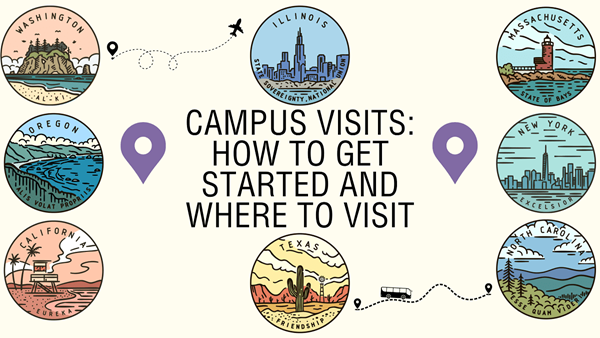How to Research US Universities When You Can't Visit
There’s no doubt about it: If international students have the time and ability to visit campuses in the U.S., do it! But that certainly isn’t always a realistic option.
When I worked as a college counselor at an international school in Hong Kong, I was so inspired by the students’ willing to travel so far from home to attend college. When I realized that many had never even stepped foot in the U.S., I was truly blown away! But as conversations regarding best fit evolved and students would say something like, “I definitely want to attend college in a city, but it doesn’t matter where,” I knew that I had to help my students understand how dramatic of a difference there is between cities like Albany and Albuquerque, for example.
So, for those students just too far away to visit prospective colleges—here are five essential steps to take to make sure you pick the right colleges for you:
- Take a virtual tour. Websites like CampusTours and YouVisit (or you might find a virtual tour on the specific college admissions website) let you feel like you are standing in the center of the campus quad. Of course you don’t have the opportunity to interact with student tour guides and the college chooses what to showcase in the virtual tour, but this is a great way to get the physical lay of the land.
- Look into the international student services office. Many colleges have a designated office or staff members to help international students acclimate to their campus (if a college does not have such an office that may be something to take note of!). Curious how you would get from the airport to the campus? Wondering if you’d have to ship linens and towels from home or if someone takes new students shopping for these supplies upon arrival? What will you do during shorter school breaks if you can’t fly home? This is the office to address any of those concerns. Pay particular attention to whether or not the college offers a separate new international student orientation in advance of starting classes. The resources and opportunities offered by this office are real indicators of how dedicated that college is to its international student population.
- Chat with a college student ambassador. Contact the college admissions office or the international student services office to see if they have student ambassadors available to answer questions for prospective students and for international students in particular. These are current college students who are happy to engage in honest conversation usually by email but perhaps with a phone call as well. Ask them the tough questions! Why did you pick this college? What was the hardest part about the transition to college? What do you miss most about home? What resources have you taken advantage of on campus? What’s the international student community like there?
- Chat with former students from your high school. If the college doesn’t have student ambassadors, or you just want another opinion, go ask your college or guidance counselor if he/she knows of any previous students from your high school that currently attend, or recently graduated from, the college you are considering. Former students are almost always excited to chat with students from their high school about their college experience. Ask them all the same questions you asked the college student ambassador!
- DON’T rely on rankings. Or at least, rely only on rankings that matter to you. National rankings reveal next to nothing about the culture and community of a college campus, which are among the most important elements to consider when narrowing down your college list. Decide what is important to you about the place you’ll call “home” for four years and search for those rankings. Do you want an environmentally friendly campus? Do you want to know which colleges have the most students studying abroad? Do you want professors who are known to be accessible? There are rankings for all of these things and many, many more. So come up with a list of what is important to you and then search on those parameters. See if the college website or social media platforms address the issues that matter to you. Look at the student newspaper or student or professor blogs to see what they are talking about—does it interest you? If an admissions officer visits your high school or offers an information session in your town, go to it and have a real conversation about what matters to you—don’t just listen, ASK!






